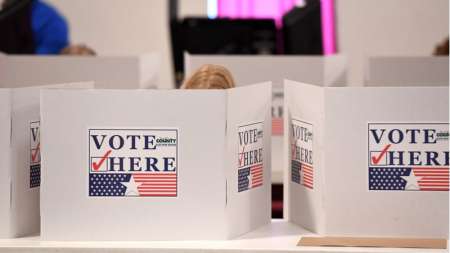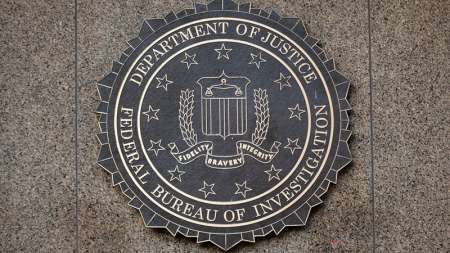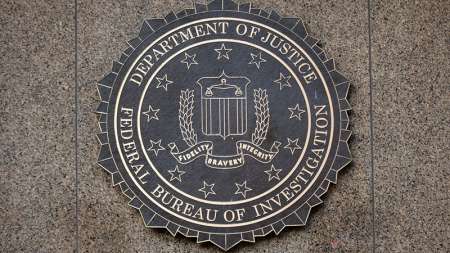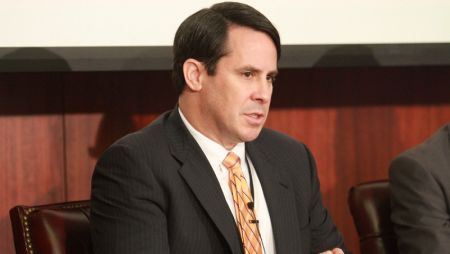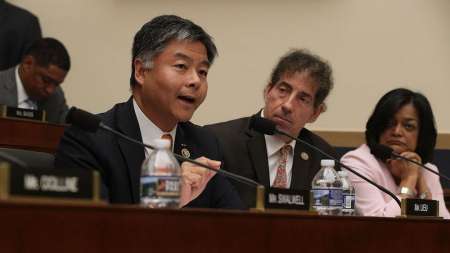In a letter released Thursday, Rep. Jerrold Nadler, D-N.Y., questioned the Trump administration’s commitment to election security and pressed administration officials to communicate more clearly with Congress about the issue. […]
Federal agencies need to get into second gear in their efforts to defend against insider threats, as outlined in the “Insider Threat Program Maturity Framework” released this month by the National Insider Threat Task Force (NITTF). Agencies must move past the minimum standards many have established and become more proactive in countering what the task force said is a dynamic threat that has moved beyond basic defenses, according to the framework. […]
The North Korean hackers known as Lazarus Group are now stealing from ATMs to the tune of tens of millions of dollars, according to research Symantec released Thursday. […]
The Office of the Director of National Intelligence, alongside the Justice Department, Federal Bureau of Investigation, and Department of Homeland Security, released a joint statement today that expresses their concern over election interference and calls identification and prevention of interference a “top priority for the Federal government.” […]
The Department of Justice (DoJ) today announced that a grand jury has indicted seven officers, all Russian nationals and residents, in the Russian Main Intelligence Directorate (GRU), a military intelligence agency of the General Staff of the Armed Forces of the Russian Federation. […]
At the National Association of Corporate Directors Global Board Leaders Summit on Monday, Federal Bureau of Investigations (FBI) Director Christopher Wray stressed that the FBI and corporate executives must work together to keep companies safe from cybercrime. Wray called on executives to report cyber incidents to the FBI as soon as possible, explaining that the FBI needed the info to have a clear understanding of the current threat landscape. […]
The Department of Homeland Security (DHS) and the Federal Bureau of Investigation (FBI) yesterday issued a warning that cyber actors are increasingly exploiting the Remote Desktop Protocol (RDP) to conduct malicious activity. […]
Jay Tabb will begin his tenure as the executive assistant director of the FBI’s National Security Branch (NSB) early next month. […]
Trent Teyema, chief of cyber readiness and cyber division chief operating officer at the Federal Bureau of Investigation, has left the FBI for a role in the private sector. Teyema will be joining the Parsons Corporation as senior vice president and chief technology officer for the company’s Federal business, Parsons announced on Thursday. […]
Apple later this year will launch an online portal for law enforcement officials to submit “lawful request for data, track outstanding requests, and obtain responsive data” from the tech company. […]
A pair of U.S. senators wrote to the heads of the Department of Homeland Security (DHS) and Federal Bureau of Investigation (FBI) on Friday, imploring them to work with social media companies to root out election interference on their platforms and asking the agency heads for more information on the steps they’ve already taken to do so. […]
The Department of Homeland Security (DHS), the Federal Bureau of Investigation (FBI), Facebook, and Microsoft hosted a joint briefing on Friday, Aug. 24, for the National Association of Secretaries of State (NASS) and the National Association of State Election Directors (NASED) regarding “actions being taken to combat malicious interference operations.” […]
The Federal Bureau of Investigation (FBI) welcomed several new faces to cybersecurity and IT leadership positions on Monday, as FBI Director Christopher Wray announced four appointments to leadership positions. […]
Even as Apple went public yesterday with a new mobile device operating system intended to close security loopholes that law enforcement agencies were using to access locked devices, one digital forensics firm said it found a workaround to bypass the new security features for a cost of about forty bucks. […]
Howard Marshall, deputy assistant director of the cyber division at the Federal Bureau of Investigation (FBI), said Thursday at MeriTalk’s Akamai Government Forum that the bureau is taking a proactive approach to defending and apprehending when it comes to cyber criminals. […]
Welcome to MeriTalk News Briefs, where we bring you all the day’s action that didn’t quite make the headlines. No need to shout about ‘em, but we do feel that they merit talk. […]
House members on Thursday reintroduced a bipartisan bill that would prevent states from requiring technology companies to include encryption “backdoors” in their products that would allow governments to access data stored on those products. […]
Agencies need to leverage digital recruiting initiatives and enhanced data techniques to better attract talented and diverse personnel, according to human relations professionals at several Federal agencies speaking at a FedInsider webinar held May 31. […]
A new report from the Departments of Commerce (DoC) and Homeland Security (DHS) suggests that the proliferation of botnets and the automated, distributed cyber attacks they generate will cause greater problems for Federal agencies absent a robust government response to the problem that includes a proper mix of funding, policies, and public-private collaboration. […]
Today the Department of Homeland Security (DHS) and the Federal Bureau of Investigation (FBI) released a joint Technical Alert (TA) identifying two families of malware–dubbed Joanap and Brambul–used by the North Korean government. […]
The world over, folks ask the same two questions every day–what’s for dinner, and what’s the weather forecast? In the government IT space, every day we’re all asking about the cloud forecast. A recent report from P&S Market Research provides new insights on the global government’s cloud appetites. […]
It appears that the improved reliability and security of cloud computing is attracting more law enforcement agencies. The U.S. Customs and Border Protection (CBP) is the latest agency looking to migrate applications to a commercial cloud provider. […]
About five years ago, many law enforcement officials wondered if the cloud was safe enough to hold their data. Now the FBI, the nation’s top law enforcement agency, is considering a move to a large-scale, commercial software cloud provider. […]
The FBI fell far short of its own goals for fighting cybercrime in 2017, according to a Department of Justice (DOJ) audit. The FBI reported disrupting or dismantling 262 high-level criminal operations targeting global U.S. interests, only about half of its goal of 500, and roughly one-tenth of the 2,492 cybercrime operations it broke up in 2014. […]
The FBI currently has a backlog of nearly 7,000 crime-connected phones that its experts are unable to crack. And it’s going to get much worse, law enforcement leaders say. […]




